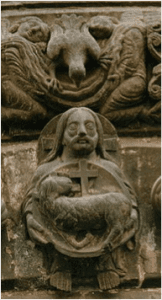Inside of the oldest church in Egypt We have a significant cast of characters when we talk about 4th-5th-century controversies. It might be helpful if we first listed them up front, sort of like a Russian novel giving all the main players and their relationships in a list before the story gets started. The interesting thing about really believing that God is involved in history, not just back then there, but in an ongoing way—speaking, acting, moving, informing, shaping, inspiring,... Read more















